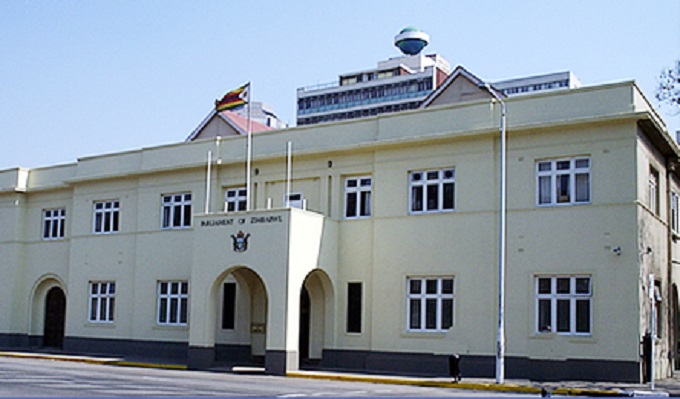PRICING RACKET . . .Government suppliers, contractors bleed Fiscus through speculative billing

Nqobile Bhebhe, Senior Business Reporter
GOVERNMENT’s value for money investigation on all payments to suppliers and contractors to ministries, departments and agencies has exposed a massive overpricing scam by unscrupulous service providers some of whom pegged their prices based on speculative market exchange rates as high as ZWL$2 000 per US dollar.
The obscene forward pricing of goods and services rendered to ministries, departments and agencies (MDAs), as well as parastatals and local authorities has been blamed for fuelling wild parallel market exchange rates and subsequent price escalation.
With Government being the major buyer, the move prompted the recent suspension of payments to some supplier contracts, which are now subject to a value for money audit review before the payments are made, as a corrective measure.

The pricing models adopted by contractors and suppliers leaned on ridiculous extortionist behaviour and are not anchored on economic fundamentals, the Treasury has said.
Recently, it emerged that the Parliament of Zimbabwe was billed US$10 000 per laptop, which is way above general market prices for high specification laptops while a 2kg pack of chicken was claimed to be worth US$30 against market prices of a maximum of US$6.
To that end, the Ministry of Finance and Economic Development last month instituted a “value for money process” for all payments to suppliers and contractors to central Government, departments and agencies.
Giving an update on the impact of these measures yesterday, Finance and Economic Development Minister, Professor Mthuli Ncube, said the pricing framework adopted by suppliers has been characterised by a behavioural tendency for forward pricing and benchmarking prices to front-loaded parallel market exchange rates.
He said the combined effect of such inflated procurement costs is the rapid erosion of budgeted resources and hence the need for the Government to come up with a raft of measures to deal with the menace.
“These behaviours were effectively directly driving inflation in the economy, making inflation control difficult, as market behaviour was in fact creating and sustaining adverse inflation expectations,” said Prof Ncube.
“It was, therefore, necessary and urgently imperative for the Government through Treasury to institute additional comprehensive measures to further strengthen procurement systems and to improve management of payment cycles for Government contracts.
“We have seen supply contracts with prices clearly determined using forward parallel market exchange rates, some as high as ZWL$2000 per USD,” said the minister.

“The extortionist pricing of goods and services supplied to the Government is in most cases not anchored on economic fundamentals.”
Prof Ncube said such speculative behaviour will no longer be accepted nor tolerated going forward, adding that the Government is encouraging all stakeholders in the economy to benchmark prices fairly for all consumers as this bolsters confidence in the economy.
He said after its assessment, the Government has noted with concern that MDAs through the various procurement management units, have not been exercising due diligence, especially regarding the value for money in terms of pricing.
“They have been merely following procurement rules without due regard to established value for money practices already enshrined in the Procurement laws of the country,” said the minister.
“Tenders have been awarded without due regard to price checks on the basis that prices have passed a competitive bidding process.
Prof Ncube said although there has been resistance to the move, the Treasury has now become very strict in enforcing measures to enhance economic stability.
He said some accounting officers and progressive suppliers were seeing the merit of this exercise and there is a now a reasonably high level of compliance.
The value for money process will now result in punitive measures being taken against any Government officials found to be complicit to overpricing and procurement malpractices while suppliers will be blacklisted and excluded from future supply contracts, added Prof Ncube.
Last month, President Mnangagwa said accounting officers who fail to detect pricing malpractices would be deemed criminally negligent and held personally liable in terms of the Public Finance Management Act while suppliers who generate invoices based on black market exchange rates would be banned.
“All existing contracts are now being subject to a value for money audit before payments are made. In light of the above, the Government has started enforcing measures to enhance economic stability by suspending all inflated payments and ordering an audit exercise to revalidate all running contracts and renegotiate prices with various suppliers,” said Prof Ncube.
He said one of the key positive effects of the value for money principle has been the slowing down in the rise of exchange rates in the markets.
“The suspension of all payments to contracts that are clearly based on speculative forward exchange rates has seen a rapid correction in the market with the official exchange rates on the auction and the WBWS (willing buyer willing seller) exchange rates in the banks converging between ZWL605/ 1 USD to ZWL660 /1USD,” said the minister.

Parliament of Zimbabwe
“This correction has been supported by a significant and observed retreat of the unofficial exchange rates to levels below ZWL700/1 USD.”
However, contrary to misconceptions that Treasury has withheld payment to all suppliers of goods and services, the suspension applies to only a third of providers accused of inflating prices, with authorities ready to resume disbursements once prices are adjusted.
Prof Ncube said Government remains committed to maintaining macro-economic stability and the elimination of harmful and destabilising arbitrage conditions that have pervaded the economy at the expense of the generality of citizens.
In the past six weeks, a total of $184 billion in local currency has been paid at a time when Government supply contracts have been undergoing a validation exercise.
“These payments have been made to various players in the market so it is not a fact that the Government is not paying for goods and services,” said the minister.
“As we move ahead to implement the value for money process, we are committed to honouring all our obligations provided that they are priced correctly in the public interest and such payments will not adversely impact the exchange rate and cause inflation.”












Comments